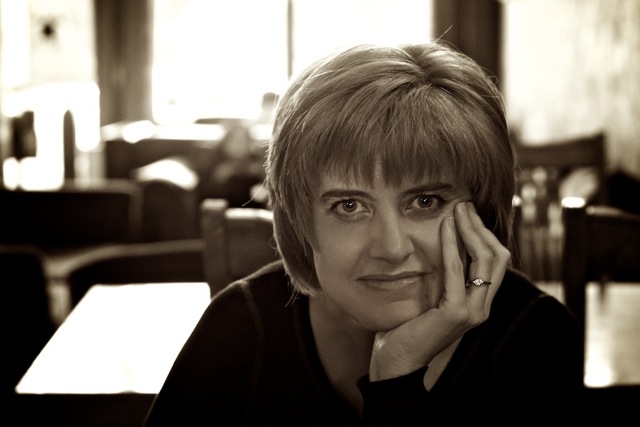P&W-funded Jo Scott-Coe is an associate professor of English and creative writing at Riverside City College in Southern California. Her memoir in essays, Teacher at Point Blank (Aunt Lute), was listed as a “Great Read” by Ms. Magazine. In 2009, she won the NCTE Donald Murray Prize for writing about teaching. Her nonfiction and interviews have appeared in many publications, including Salon, the Los Angeles Times, and Narrative. She is currently at work on a collection of lyric meditations about American public performances of violence since the UT Austin shooting in 1966.

Workshops can be fantastic tools for writers: They can facilitate new writing, help with honing a current project, and provide forums for professional advice and opportunities for networking.
For many writers workshops can also feel disappointing or desperate, even subtly (or not-so-subtly) savage. Informal editing or writing groups formed independently by a few folks who know each other can be fantastic, but even these ventures can begin with high energy that ultimately fizzles due to mismatched expectations about goals, commitments, and organizational styles.
When looking for a workshop or retreat, new writers may find the scope of options intimidating. Should you spend a lot of money? Do you choose a program based on location and potential inspiration, or aim for a particular aesthetic or pedigree?
Fortunately, anyone can survey hundreds of options for free via online resources at Poets & Writers, Newpages, and The Association of Writers and Writing Programs. There are also regional listings, such as Poetix and Independent Writers of Southern California. Probably nothing beats word-of-mouth testimony. However, you’ve got to tap into workshop and readings circuits in order to hear those words. You’ve got to put yourself into the mix, and then see where you want to go. This means taking some risks.
It helps to refrain from idealizing any one workshop session, series, program, or facilitator as the solution to all your writing needs. It also helps to avoid believing in an unrealistic outcome as the measure of value of a particular workshop (“If I serve the right tables at Breadloaf, I’ll get published in the New Yorker!” or “Just meeting with X will get me a job!”). Investing too heavily in a narrow outcome can distract from the focus of one’s goals—to keep writing, to get better, to fail better—and wastes valuable time and creative energy.
Remember that even great workshops can have “off” seasons, and facilitators are human beings, not magicians or saviors. Some workshop experiences are simply unpredictable. For example, I had the chance to work as an undergraduate in a college composition course at USC with Sandra Tsing Loh, who was a graduate student in the Professional Writing Program at the time. She continues to be a transformative influence on me and my writing, but being in her class was an accident.
I met poet Jack Grapes when, on a fluke, I attended the fantastic Conference of the Living Tree at Ojai as a first-year English teacher in 1992. Afterwards, I attended Jack’s The Deep Voice process workshops for nearly a decade. I drove my Nissan from Riverside out to Jack’s house in Los Angeles’ Wilshire District after a full day of working with fifteen-year-olds. I loved every minute of the trip. In Jack's workshops, I met writers who also had day jobs and were looking to cultivate literary spaces: Larry Colker (founder of Redondo Poets), Chiwan Choi (founder of Writ Large Press), and Mifanwy Kaiser (founder of Tebot Bach Books).
You get the idea: those unplanned, wonderful experiences were the result of my commitment to one central goal: to learn and absorb as much as possible. Attending workshops shouldn't be a passive exercise.
Of course, when researching workshops there are practical and philosophical questions everyone has to consider. First the practical ones: Are you looking mostly to generate new work, or to revise longer writing? Are you interested in genre experimentation, or do you want to hunker down with short stories or poems or memoir work exclusively? Do you want to compete for a place in the workshop based on a writing sample, and is there a fee to enter the competition? How far are you willing to travel? How many sessions do you want, and how much time and money can you budget? If you’re considering an online option, how much do you know about the structure regarding participation and feedback?
The philosophical questions may be even more important: Do you have any “hot spots” or “triggers” when it comes to receiving or providing feedback? If so, can you identify them so that they don’t impede your ability to participate openly? Are you willing to collaborate with people who may have vastly different levels of skill, or would you rather work in a more homogenous group? How important to you are the history of the workshop and/or the creative output of instructors or former students? How willing are you to risk and to fail in this workshop alongside other people—or is your main goal to get some basic human affirmation?
Ultimately, no workshop can substitute for reading and writing as much as possible. And the best measure of value for any workshop may not be whether you received praise from a mentor or an “A” in the course—or even whether you publish the piece over which you agonized so much. If the experience leads to more writing, a wider understanding of the marketplace, more endurance for challenges and a more focused understanding about what you’re doing and/or why you bother, that’s the long game. That’s always a win.
Photo: Jo Scott-Coe. Credit: Wes Kriesel.
Major support for Readings/Workshops in California is provided by The James Irvine Foundation. Additional support comes from the Friends of Poets & Writers.







